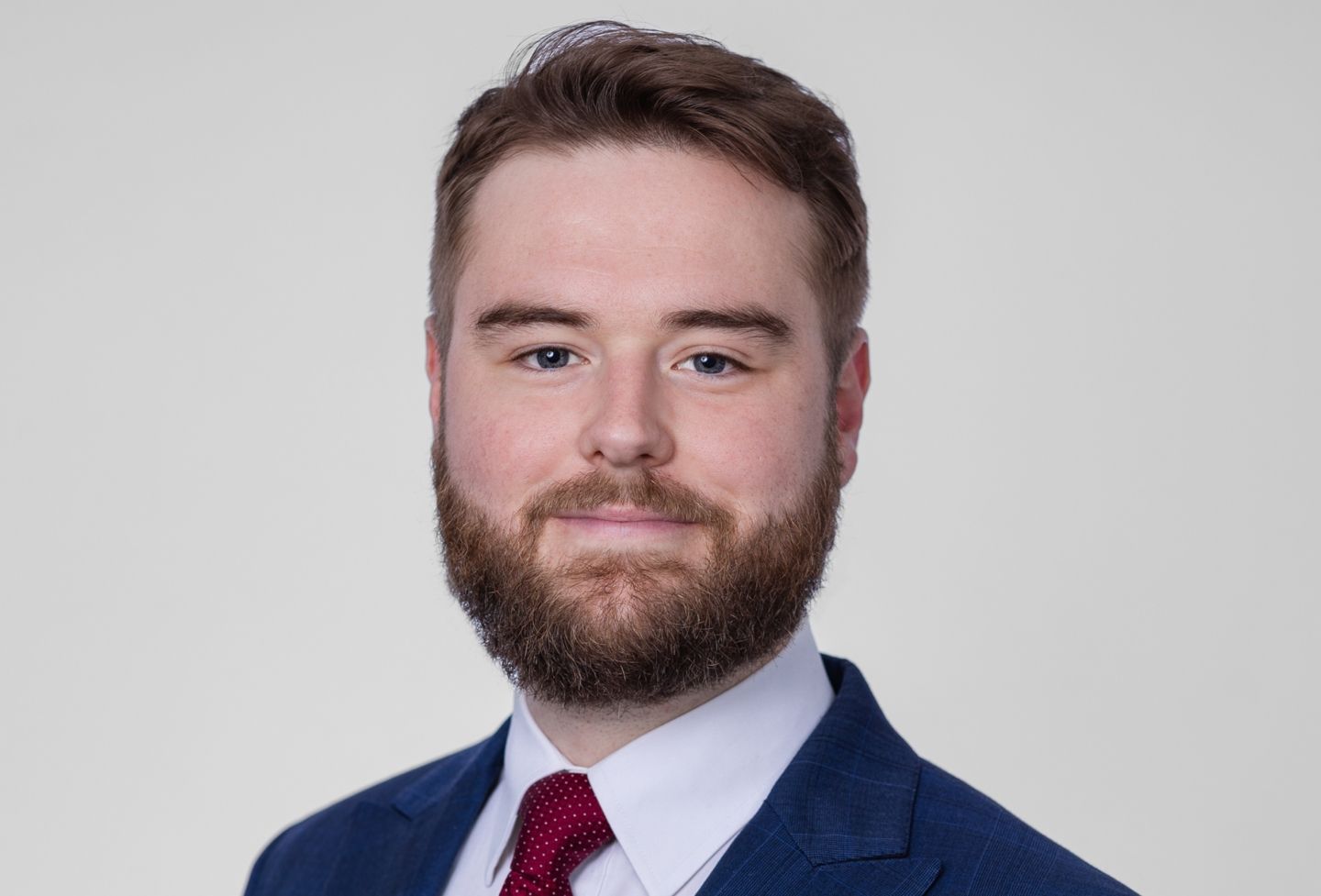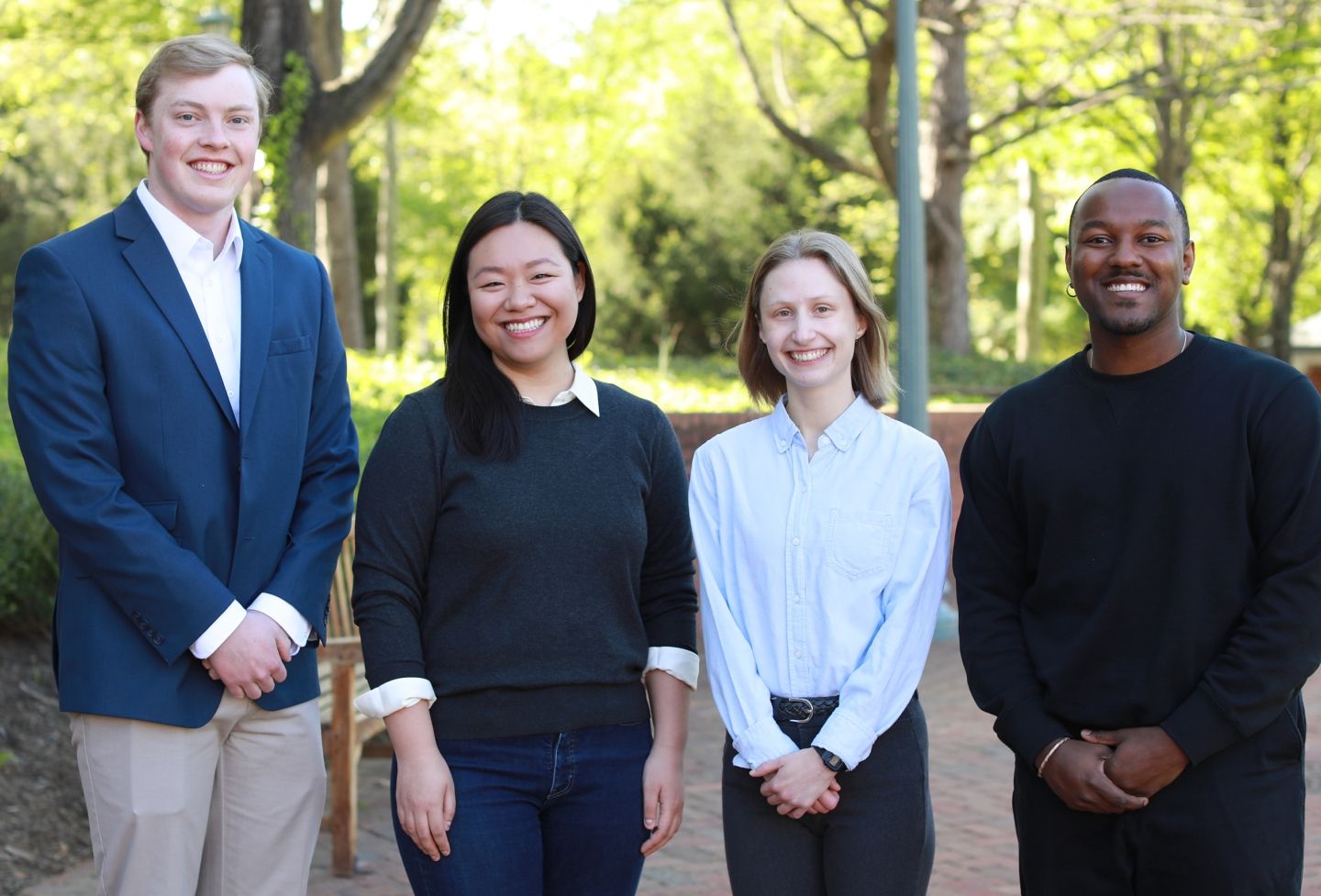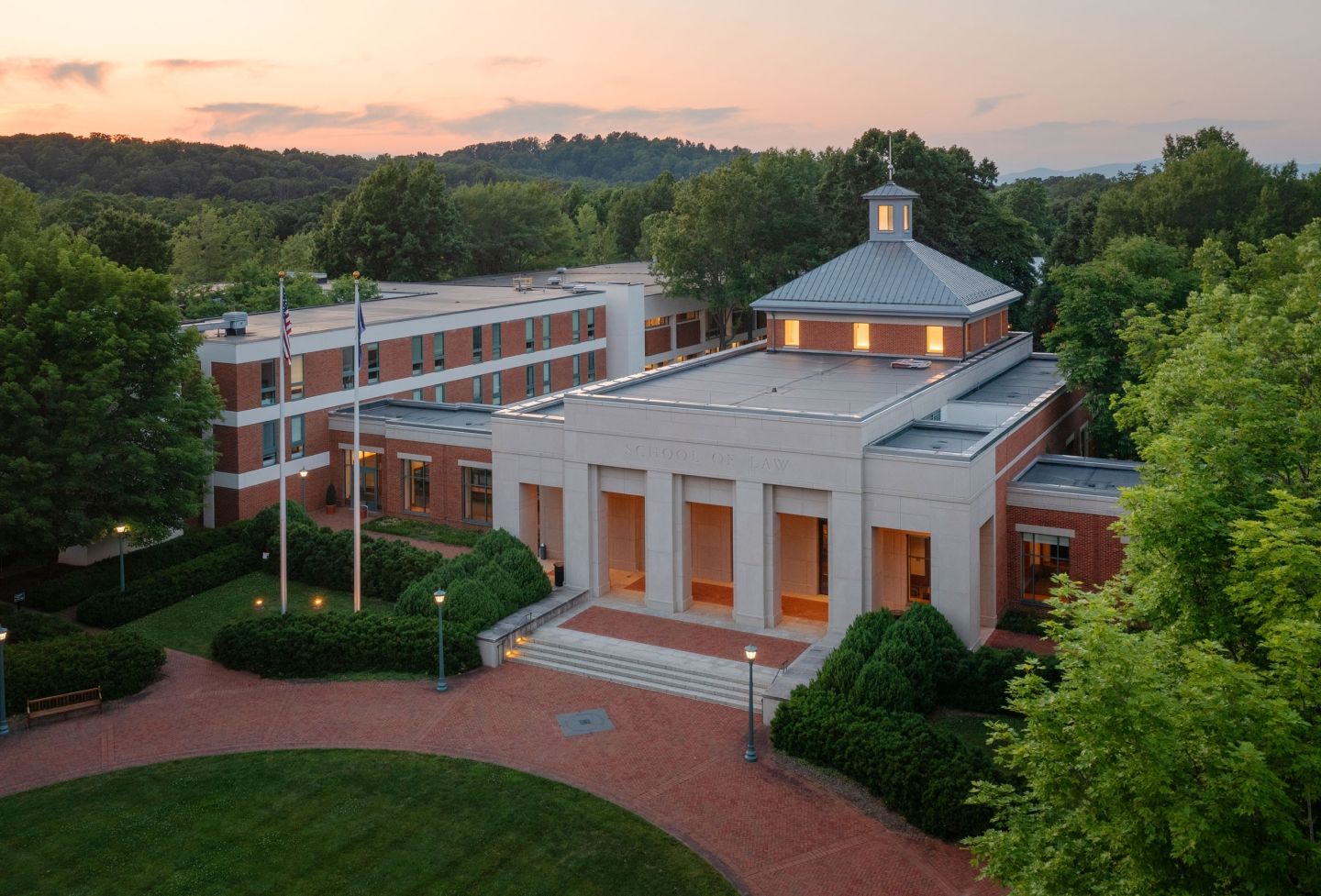English major Gregory McKnight ’26 thought about taking up his pen to become a screenwriter. But after working in law firms, he instead wrote a new chapter in his life at the University of Virginia School of Law.
At UVA, McKnight serves on the editorial board of the Virginia Journal of Social Policy & the Law and as the author of the thorny problems posed to competitors in the William Minor Lile Moot Court Board.
The Woodbridge, Virginia, native earned a bachelor’s degree from Boston University. After graduating, he worked in intellectual property law at the firm Oliff as a patent support specialist and new applications specialist, and then at Crowell & Moring as an IP intake specialist.
In our occasional series “Star Witness,” McKnight discussed his most meaningful law school class and his summer clerkship for a public defender’s office.
Tell us something about your life before law school.
I was born in Washington, D.C., and grew up in Northern Virginia. I’m a proud graduate of Northern Virginia Community College. While at the time I was not always happy to be in community college, I look back on those years and working my retail and food service jobs with a lot of nostalgia. I’m happy to have started from humble roots. I also continued working through school when I transferred to Boston University.
I worked several odd jobs for random residents in the greater Boston area, such as catering for household dinner parties, raking leaves and helping people move. Besides giving me some cash in my pocket as a broke college student, I got to meet so many interesting people. I’m happy I had the chance to leave my hometown for college because I met people from all over the world at BU and spent a lot of my non-classroom time enjoying concerts, sport events, listening to author talks at bookstores and getting lost in Boston’s Museum of Fine Arts.
Why law school?
I was an English major in college because I wanted to be a writer. I was specifically interested in becoming a screenwriter and figured an English degree would make me a better storyteller than the traditional film school route would. I went to college in Boston and had several friends who were interested in law school, so I followed their lead a bit and started doing tours at laws school and found myself extremely comfortable in the environment. I also made the shift away from entertainment to law because I wanted a more stable career path. Before law school, I wanted to be sure of my decision, so I worked in intellectual property law for about four years before finally enrolling.
The biggest lesson I learned from working in IP and filing over 1,000 patent applications with the U.S. Patent and Trademark office is attention to detail. The job taught me to always read client instructions, to double-check my work, and that doing quality work is one of the best things you can do for your reputation.
Describe your most interesting law school experience.
I think my favorite class was Constitutional Law with Professor [Deborah] Hellman. To me, that class was what I had in my head years ago with what I hoped law school would be like. We dissected the meanings of text and how those meanings would evolve over time. I remember on the first day she said we would become fluent in the “language of con law,” and that metaphor really stuck with me. I also enjoyed talking about cases such as Brown v. Board of Education, Dobbs v. Jackson Women’s Health Organization and Obergefell v. Hodges, to name a few, because these are cases where I can point to real people in my life who were affected by the outcomes.
My most interesting law school experiences have been with Section E. One of my classmates hosted a section Thanksgiving dinner just before break. We had so much good homemade food, laughs and just good vibes. I truly loved being a part of Section E during 1L. My section also rented out a theater to see “Barbie” with our Contracts professor.
Tell us about your law clerkship.
I’m a law clerk for the Alexandria Public Defender Office. Someone in my family has lived in Alexandria for every generation since the 1860s, so it means a lot to me to work in the area. Walking down King Street every morning just makes me happy. I’m learning so much every day on how attorneys passionately advocate for their clients. I am among a wonderful set of interns from other law schools and our lunches are often filled with laughter and engaging conversations. I’m in court following my attorney around at least three days a week. I’m sent on legal research assignments on interesting issues that can benefit our clients in real time and given chances to improve written and oral advocacy skills. The training I’ve received so far this summer has made me very excited to return to UVA in the fall with what I know now.
What do you want to do with your law degree?
I want to be a litigator for a large law firm. I am not sure what I want to specialize in down the road, but I am keeping my mind open. I am also interested in one day having an in-house counsel role at either Google or the NBA.
Founded in 1819, the University of Virginia School of Law is the second-oldest continuously operating law school in the nation. Consistently ranked among the top law schools, Virginia is a world-renowned training ground for distinguished lawyers and public servants, instilling in them a commitment to leadership, integrity and community service.


